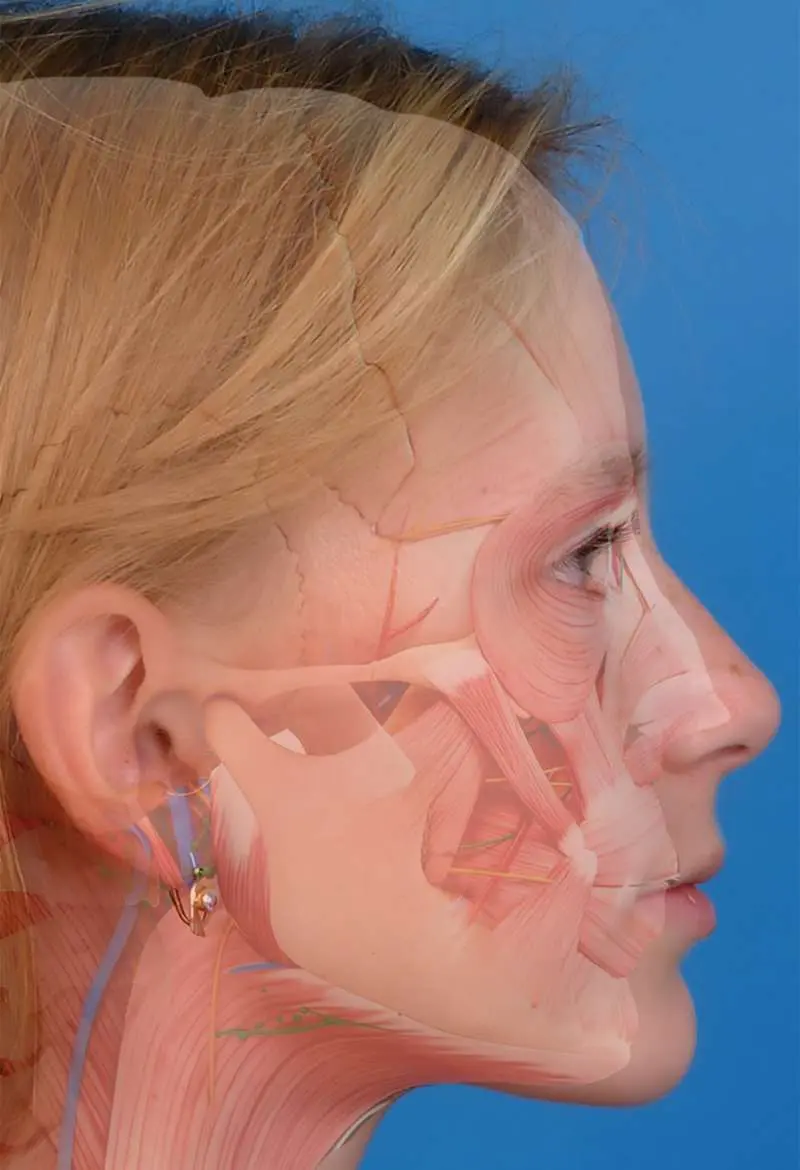TMJ Disorder
Model
What is a TMJ disorder and myofascial pain dysfunction?
Temporomandibular joint disorder (TMD) and myofacial pain are common conditions that affect the structures of the jaw and face. TMD is a disorder that affects the temporomandibular joints (TMJ), which are the joints that connect the jaw to the skull. Myofacial pain, on the other hand, is pain that affects the muscles of the face and neck.
TMD and myofacial pain are often closely related, as dysfunction of the TMJ can cause pain and discomfort in the muscles of the face and neck. However, it is important to distinguish between the two conditions, as they may require different treatments.
TMD and myofacial pain are often closely related, as dysfunction of the TMJ can cause pain and discomfort in the muscles of the face and neck. However, it is important to distinguish between the two conditions, as they may require different treatments.
TMJ dysfunction can be classified into several subtypes based on the specific symptoms and underlying causes. One common subtype is called internal derangement, which is characterized by problems with the soft tissues within the TMJ. Another subtype is called degenerative joint disease, which is caused by the breakdown of the cartilaginous discs or condyles within the TMJ.
Myofacial pain, on the other hand, is typically classified based on the specific muscles that are affected. Examples of myofacial pain subtypes include masseteric pain, temporal pain, and perioral and facial pain.
Fortunately TMJ dysfunction and myofacial pain can be diagnosed and effectively treated.
What is the best treatment for TMJ dysfunction?

The treatment of TMJ Dysfunction is a best done by specialists with advance training in jaw and bite disorders and often involves a multidisciplinary approach and team of specialists including a board certified orthodontist.
Treatment may involve a combination of medication, physical therapy, and in some cases, surgery. It is important for doctors to carefully assess the underlying causes of the disorder and develop an individualized treatment plan to provide the most effective relief.
Treatment of temporomandibular joint dysfunction,(TMJ dysfunction) also known as temporomandibular joint disorder (TMD), typically involves a combination of approaches. The specific treatment plan will depend on the underlying cause of the dysfunction and the severity of the symptoms.
One of the first goals in the treatment of TMD is to relieve pain and discomfort.
This may include making a custom made, comfortable splint, to be worn at night while sleeping, to help position the jaw optimally especially during possible episodes of teeth clenching or grinding eg. during dreaming.
Treatment may also include physical therapy, a home exercise program, including exercises to improve the strength and flexibility of the muscles of the jaw and face, and techniques to promote relaxation and reduce stress.
Sometimes, over-the-counter or prescription pain medication, such as nonsteroidal anti-inflammatory drugs (NSAIDs) or muscle relaxants is helpful and in some cases, Botox injections into specific muscles may be recommended to provide relief.
Can splints, clear teeth aligners or orthodontic treatment help TMJ dysfunction?
An important aspect of TMD treatment is addressing any underlying causes of the dysfunction.
If misalignment of the teeth is contributing to A TMJ disorder, orthodontic treatment may be helpful to correct the misalignment.
If jaw clenching or grinding (bruxism) is a contributing factor, a custom-made bite splint or night guard may be designed specifically for your condition.
In severe cases of TMD, surgery may be necessary to repair or replace the damaged structures of the TMJ. This may include procedures such as arthrocentesis, arthroscopy, or open joint surgery, though these are seldom necessary and can usually be prevented.
If you are struggling with jaw pain or having difficulty chewing and speaking, schedule a consultation with us today at (310) 454-0317.
